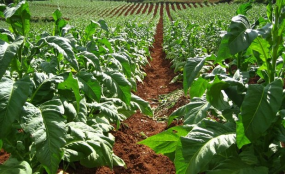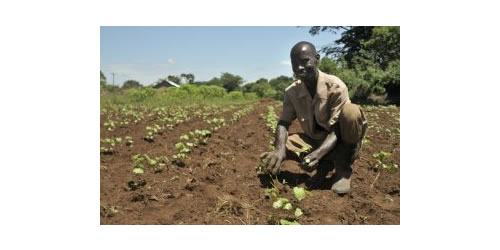700 Vegetable farmers join franchise farming scheme

About 700 vegetable farmers in the Volta Region have been registered to be part of a franchise farming scheme developed by a local company, Nest Agro Foods.
The registration, which was done in collaboration with the Keta Vegetable Farmers and Marketers Association, forms part of a grand initiative meant to give farmers the opportunity to have the right price for their produce.
It is also intended to make the Volta Region the hub of fresh organic vegetable production local consumption and for exports.
The Chief Executive Officer (CEO) of the company, Mr Mawutor Kumah, who disclosed this to the Daily Graphic at the weekend, said through franchise farming, Nest Agro Foods, an indigenous agribusiness company, which is spearheading the initiative, was meant to enable farmers to produce on a larger scale and be paid the right price for their produce to cover their cost while making an appreciable margin.
“The farmers we have registered so far cultivate tomatoes, onions, carrots, okro, challots, Asia onions, pepper, among many others,” he said.
Mr Kumah said the total acreage of the farmers registered was in excess of 1,200 acres, because of the use of organic fertilisers as part of measures to ensure that “those who buy them get the right natural taste of the vegetables.”
According to him, through the franchise farming method, the farmers will be in a better stead to enlarge their farms. They will also require more hands to support, thereby creating jobs for the people.
Mr Kumah said the method was also aimed at fully utilising the potential of the region as far as arable land and access to water was concerned to produce vegetables which were in high demand both domestically and internationally.
Farmer support
He said having worked with the farmers over a period, their production could increase more significantly if the farmers had access to various forms of support, including farm produce such as compost processors, water sprinklers, generators to pump water from underground unto the farms and funds to buy other amenities.
Mr Kumah said through franchise farming, the farmers would be assured of better yields and most importantly, guaranteed markets for their produce to enable them to service loans they took to support their operations.
“This is why we want the banks and other financial institutions to come and assess what is being done for them to design some packages for the farmers to expand,” he added.
He said: “There is money in farming once you do it right and we have come with this method to ensure that the losses that our hardworking farmers made in the past will be a thing of the past”.
Mr Kumah said the farmers were ready and willing to employ more hands once they got the right support and expressed the hope that the sector minister would find time off his busy schedules to visit and appreciate the concept and lend support accordingly.
“This fits well into the government’s ‘Planting for Food and Jobs’ initiative and we are ready to play within that space to elevate the region and make it the hub of vegetable production in the country,” he said.
Understanding franchise farming
Agricultural franchise can be defined as a right, permission or licence (often established by contract) granted by an agribusiness firm (called the franchisor) to another agribusiness firm (the franchisee) to distribute, manufacture, and/or use the trade name of the former’s products and services usually in a specified territory for a specific duration.
The small farmer is mostly affected by low yields, high cost of production and low price realisation. Farmers can be helped out by helping cut down their cost of production and marketing; providing stable and remunerating market access and improving price realisation and increasing yields.
Franchise farming will enable farmers to compete effectively at the marketplace and take advantage of economies of scale. A franchised network can buy products on more favourable rates than buying same from an individual farmer.
Franchise farming will also help farmers access quality training and assistance, multiplier effects of learning and transfer of management skills. If farmers continue to use outdated management techniques, their competitive advantage based on favourable climate, rich soil and abundantly available inputs will not be transformed into economic success.
Franchise farming also helps farmers to solve financial investments through reducing transaction costs and improving execution of agricultural credits. The development of a network can provide a powerful bargaining tool with suppliers and financial institutions to negotiate favourable rates.
Source: Graphic.com.gh





